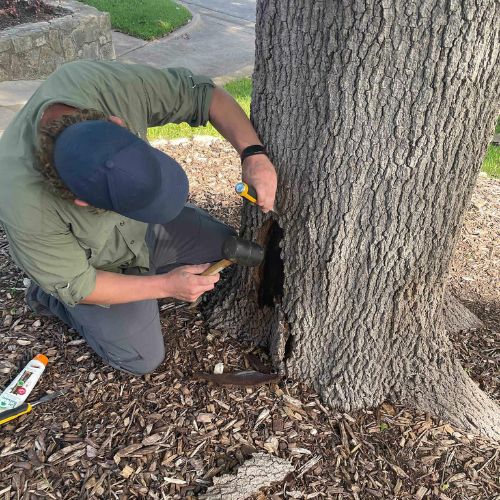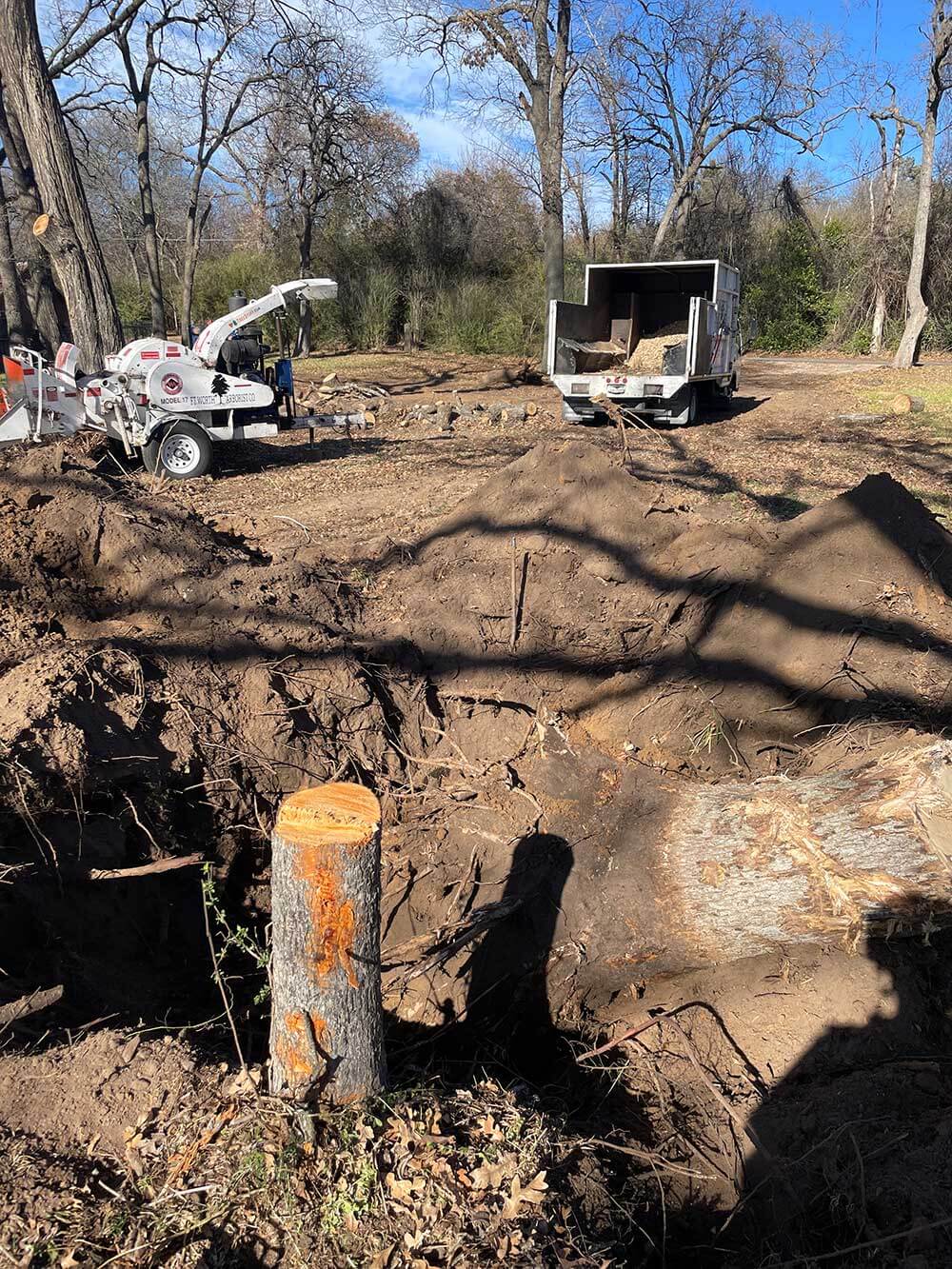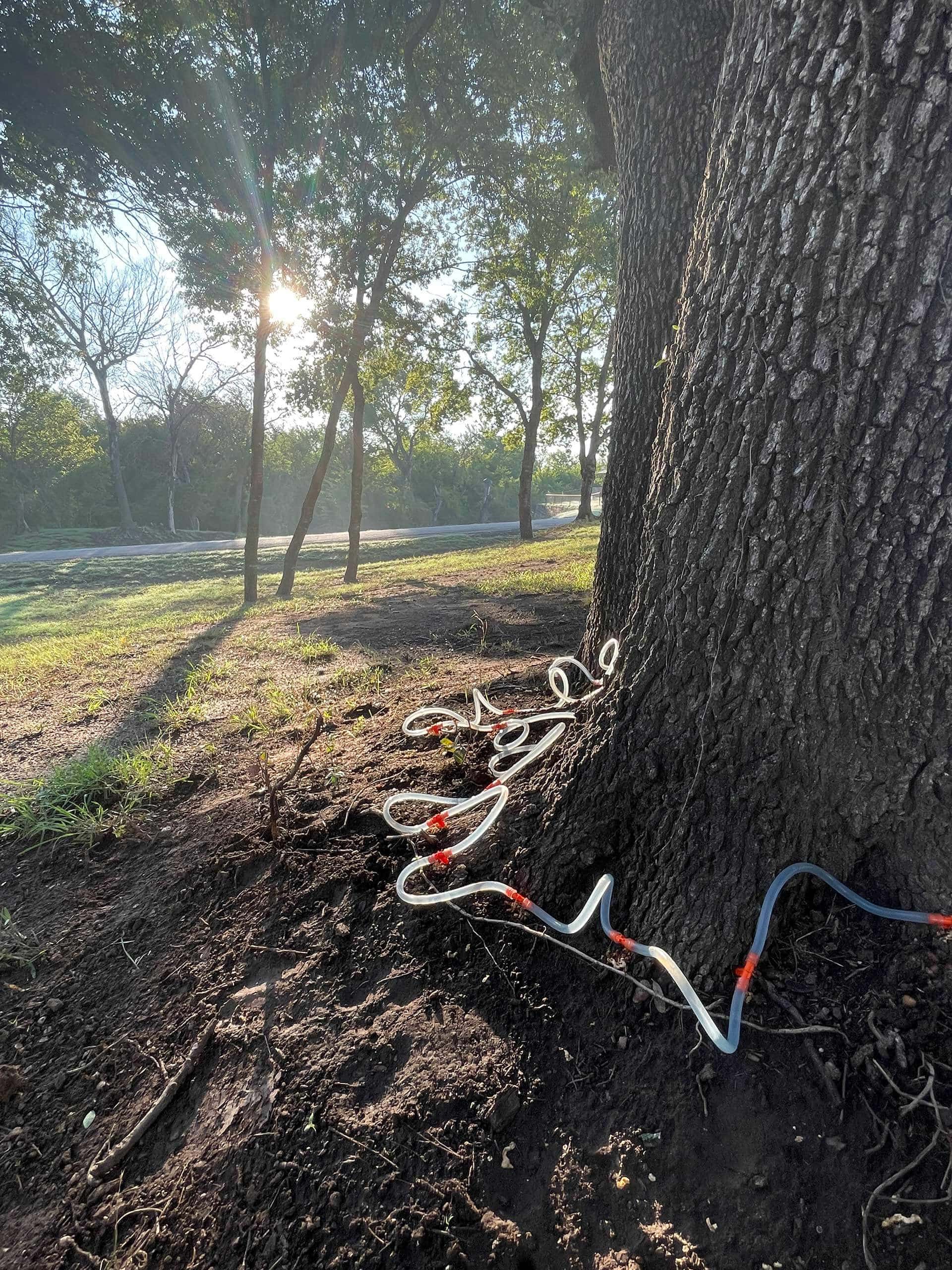Did you know that root rot can affect trees and plants outside? We tend to think that root rot only happens to inside plants, but it can also affect outdoor trees and shrubbery. Root rot is a condition in your plants or trees where the roots are rotting. This is due to inadequate drainage and overwatering. When there is nowhere for the water to go, the water can cause roots to become soggy, preventing them from getting sufficient oxygen to survive.
If you have noticed that your plants have stunted growth or that their health is starting to decline, call the arborists at Fort Worth Arborist Co.! We are a licensed, insured, and ISA-certified company that can provide professional root rot treatment in Fort Worth, TX. Contact us today at 817-975-0180 to get your plants and trees inspected.

Root rot is a devastating plant disease caused by excessive moisture. When your plants are overwatered, their roots become suffocated, leading to decay and nutrient deprivation.
Unfortunately, the only way to definitively diagnose root rot is by examining the roots. Our certified arborists can assess the health of your plant’s root system and provide an accurate diagnosis. Healthy roots are typically white and firm. Contact us today for a free assessment!

For 20 years, we’ve been Fort Worth’s leading company for Root Rot Treatment for trees.
Just call us at 817-975-0180

We are able to treat root rot by pruning infected areas of the root and replanting it in fresh soil. Because root rot can happen due to overwatering or the soil is too compacted, we will create the proper drainage. For precautionary measures, we can use chemical agents to make sure that rot root is gone.
The best way to avoid root rot is with preventative care and maintenance and at Fort Worth Arborist Co. we can provide both of those services! We offer excellent health care plans for trees and plants to ensure they do not get sick. If you think that you need rot root treatment in Fort Worth, TX, please call us at 817-975-0180.
Us
Them
Tree root rot is a fungal disease that attacks and decays a tree’s root system, leading to decline and potential death.
Common causes of tree root rot include excessive moisture, poor drainage, and soil compaction.
Symptoms of tree root rot include yellowing leaves, wilting, stunted growth, and dying branches.
While improving drainage and reducing watering can help prevent root rot, severe cases require professional tree root rot treatment for effective control.
If you suspect your tree has root rot, contact an arborist immediately for diagnosis and treatment. Early intervention is crucial.
Treatment options vary based on the severity of the infection and may include soil aeration, drainage improvement, fungicide applications, and in severe cases, tree removal.
Early detection and proper tree root fungus treatment can increase the chances of tree recovery. However, severe cases may be fatal.
The cost depends on the tree’s size, the extent of the damage, and the recommended treatment plan.
Treatment time varies based on the severity of the infection. Regular monitoring is essential to assess the tree’s progress.